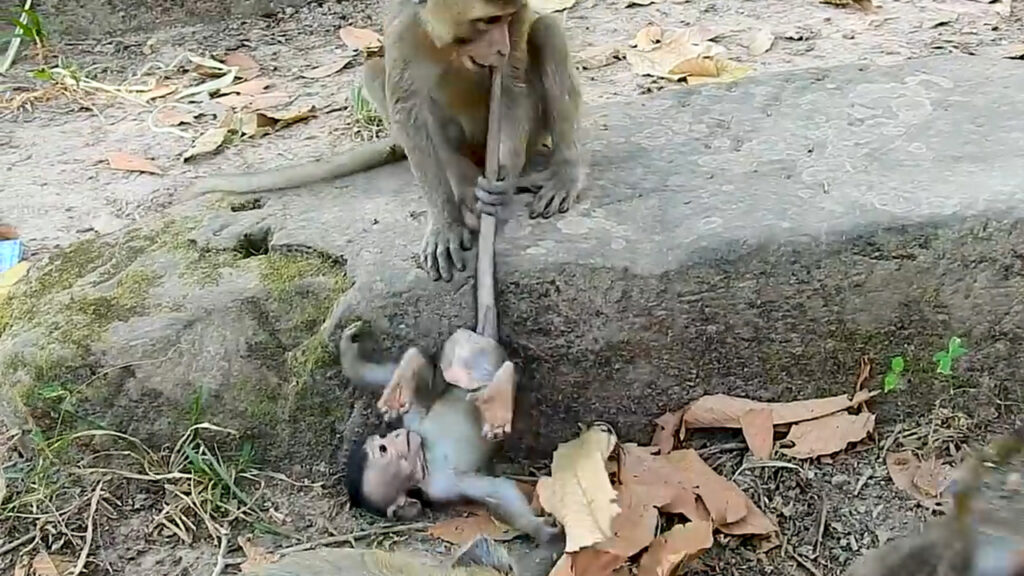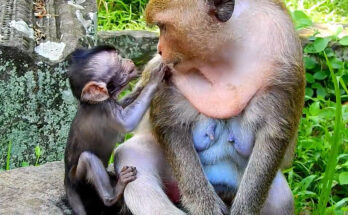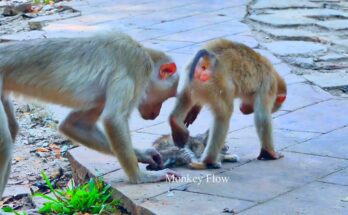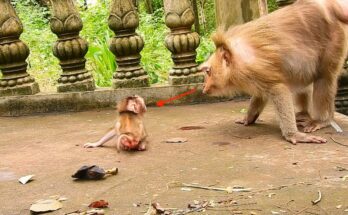
In a quiet corner of the forest, an energetic adolescent monkey was caught in a playful frenzy, bouncing around with endless energy. Nearby, a tiny baby monkey watched with innocent, curious eyes. The big adolescent was clearly feeling full of himself, tugging at branches and swinging wildly as the tiny one squeaked, hoping for some gentle attention. But instead of softness, the poor little monkey was treated like a toy.
The adolescent kept teasing the baby, pulling him back and forth by the arm, poking his belly, and hopping around as if showing off. The tiny one clung as best as he could, his small hands trembling, but the bigger monkey didn’t seem to notice or care. Every so often, he would jump away only to come back and nudge the baby again, his movements quick and unpredictable. It was clear that this was all fun and games to the adolescent, yet for the tiny one, it was becoming tiring and confusing.
Poor baby squeaked louder, trying to catch a breath, hoping someone would come to his rescue. But the teenager’s teasing continued, pulling and tugging as the baby tried to hold on. Every playful touch was too rough for the tiny one. His small face showed how scared and exhausted he was becoming.
And yet, it wasn’t done out of cruelty; this was just an energetic adolescent who didn’t fully understand his own strength. The tiny baby’s tiny legs and hands were no match for the force of an older, wilder sibling.
With every squeal, my heart hoped that someone — maybe a mother or a more gentle caretaker — would intervene to give the tired tiny one a chance to rest. Until then, the poor baby monkey could only endure the teasing of an older, more rambunctious friend.


